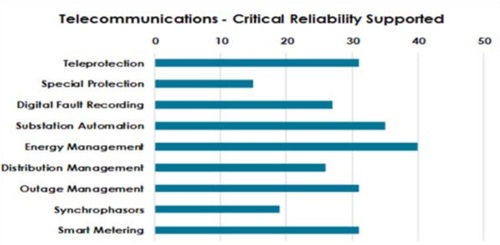The FCC may be facing another nuclear-sized interference problem
Federal spectrum regulators at the FCC have come under increasing fire over concerns that 5G in C-band spectrum might interfere with aircraft radio altimeters.
Indeed, that issue has ballooned into a major national debate, with executives in the airline industry claiming a “catastrophic failure” in regulations, while wireless technology experts lament the government’s failure to “uphold its statutory responsibilities.”
But the C-band brouhaha isn’t the only high-stakes battle over spectrum interference at the FCC. The agency is facing another regulatory battle over the 6GHz band – one that apparently has nuclear ramifications.
“NextEra subsidiary FPL utilizes the 6GHz band to provide network diversity for operations across its 30,000 square miles plus service area, including a number of large nuclear and natural gas generation facilities: Turkey Point (nuclear and natural gas), St. Lucie (nuclear), Martin (natural gas and solar), and the Okeechobee Clean Energy Center (natural gas, planned solar and hydrogen),” the company told the FCC. “Communication services utilizing 6GHz frequencies at these locations include network voice and data communications and plant control communications. These communications services are critical to ensuring required communications with the Nuclear Regulatory Commission (NRC) and Florida state government agencies and safe operations for these facilities.”
Utilities assemble
NextEra is one of several major utility companies that piled onto a last-ditch effort by several utility trade associations to block commercial operations in the 6GHz band. The FCC voted last year to open up that band to low-power unlicensed operations including Wi-Fi. And though the agency did look at whether such commercial operations would interfere with existing utility networks in the band, it didn’t look hard enough, according to the utility companies.
“The results of the real-world interference tests fundamentally call into question the basis for the commission’s rules,” the groups – including the Utilities Technology Council and the American Public Power Association – argued in a December filing at the FCC.
Specifically, the utility associations said the FCC relied too heavily on research conducted by CableLabs into whether new commercial operations in the 6GHz band would affect existing, incumbent operations in the band, including those owned by utility companies. The associations pointed to a study released in June by utility provider Southern Company that found such commercial operations would in fact affect these users.
To read the complete article, visit Light Reading.

















